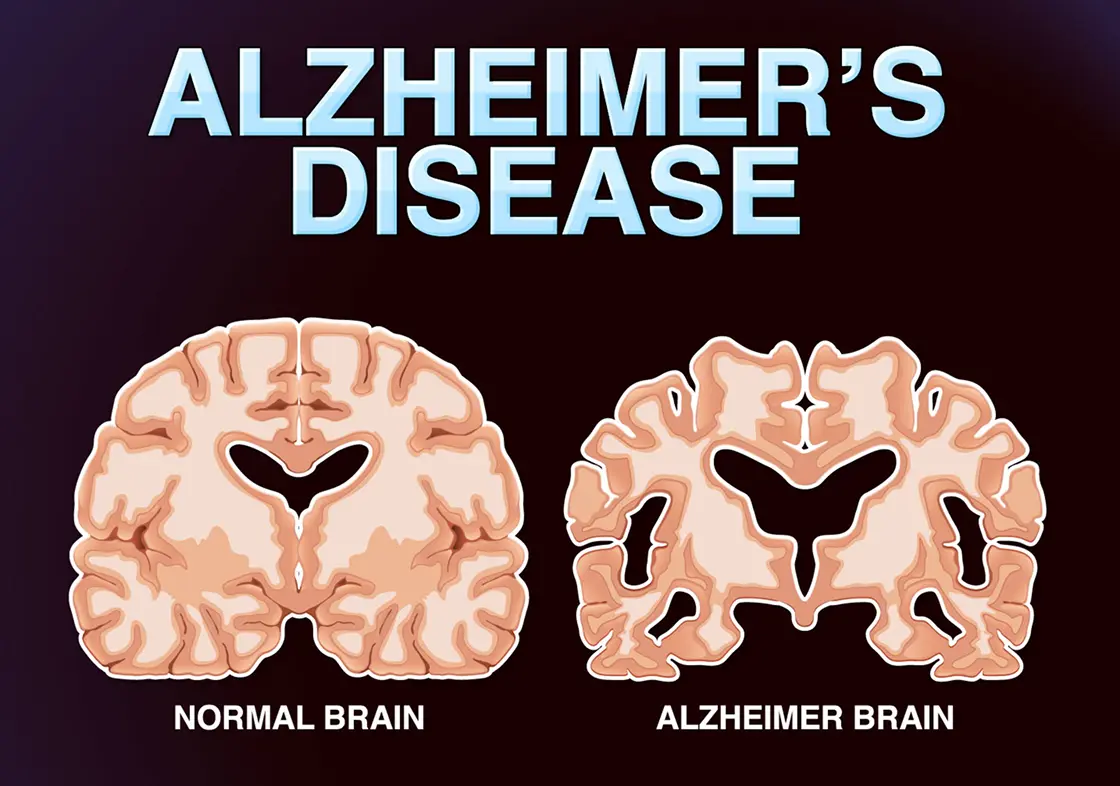Understanding the Link: Air pollution has tiny particles like PM2.5 and gases like nitrogen dioxide (NO₂) that can enter our lungs and blood. Some studies suggest that breathing in these pollutants may harm the brain and increase the risk of Alzheimer’s disease, which affects memory and thinking. Scientists still studying this link, but the concern is growing, especially in polluted cities. Here know how air pollution and Alzheimer’s disease are negatively related.
Alzheimer’s takes away memories and identities. In the U.S., 1 in 3 seniors dies with this disease. Could the air we breathe be making it worse? Tiny harmful particles can reach our brains. A major study published in The Lancet Planetary Health in 2020 found that people exposed to high levels of PM2.5—particles much smaller than a human hair—had a 24% higher risk of developing dementia.
Key Points:
- Air pollution, especially PM2.5, may raise the risk of Alzheimer’s disease, but not proven yet as a direct cause.
- Research on other pollutants like NO₂ and ozone shows mixed results, though some studies suggest a possible link.
- The strongest evidence is for fine particulate matter, highlighting the potential health benefits of reducing exposure.
Introduction and Background of Air Pollution and Alzheimer’s Disease:
Alzheimer’s disease is the most common type of dementia, affecting millions of people worldwide. As people live longer, the number of cases grows. While ageing, genetics, and gender known risk factors, scientists also looking at environmental factors like air pollution.

Air pollution includes tiny harmful particles (PM2.5) and gases like nitrogen dioxide (NO₂) and ozone (O₃). It is a big problem, especially in cities. Some research suggests that breathing polluted air for a long time might increase the risk of diseases like Alzheimer’s, but more studies can help in better analysis.
What Air Pollution is linked to Alzheimer’s Disease?
Air pollution comes from sources like , factory emissions, and burning wood. Some pollutants may be link to Alzheimer’s disease, including:
- PM2.5 – Tiny particles smaller than 2.5 micrometres that can enter the lungs and bloodstream. They may affect brain health by causing inflammation and oxidative stress.
- NO₂ (Nitrogen Dioxide) – A gas mainly from vehicle exhaust and industrial activities. Some studies suggest it could increase the risk of dementia.
- O₃ (Ozone) – A gas formed when pollutants react with sunlight. Its link to Alzheimer’s is less clear compared to other pollutants.
Organizations like the World Health Organization (WHO) track these pollutants and set safety guidelines. While air quality in some areas meets these limits, pollution remains a concern.
Evidence from Research and Reviews
Many studies suggest a link between air pollution and Alzheimer’s disease:
- World Health Organization (WHO): Estimates show that about 15% of dementia cases worldwide could be prevented by reducing air pollution. This highlights the need for urgent action.
- – Journal of Alzheimer’s Disease
- A systematic review found that for every 10 μg/m³ increase in PM2.5, the risk of Alzheimer’s increased.
- The overall risk of Alzheimer’s due to air pollution was 1.32 times higher.
- People in heavily polluted areas had over twice the risk compared to those in cleaner environments.
- ) – Journal of Alzheimer’s Disease
- Reviewed 13 studies across the USA, Canada, Taiwan, Sweden, and the UK.
- Found that higher exposure to PM2.5, NO₂, and CO increased dementia risk.
- Studies followed participants for 1 to 15 years, showing the long-term effects of pollution on brain health.
These findings suggest that reducing pollution could help lower Alzheimer’s risk, especially in highly polluted areas.
How Air Pollution May Affect the Brain?
Scientists still figuring out how air pollution might increase the risk of Alzheimer’s, but here are some possible ways:

- Damage from Inflammation and Stress: Breathing polluted air can create harmful chemicals in the body, leading to inflammation and stress in brain cells. This damage may increase the risk of Alzheimer’s.
- Pollutants in the Brain: Tiny particles from polluted air have been found in brain tissue. They may enter through the bloodstream or nose and have spotted in Alzheimer ’s-related plaques. However, nothing has proven that they directly cause the disease.
- Heart and Blood Flow Problems: Air pollution affects the heart and blood vessels, which can also harm the brain. Poor blood flow may increase the risk of vascular dementia, a condition that often occurs alongside Alzheimer’s.
- Animal Studies: Studies on mice show that pollution exposure can lead to memory loss, learning difficulties, and brain damage, similar to what happens in Alzheimer’s.
While more research is needed, these findings suggest that reducing air pollution could help protect brain health.
Can Cleaner Air Help Prevent Alzheimer’s?
Better air quality might lower the risk of Alzheimer’s. A 2021 study found that 6-7% of cases could be prevented by reducing PM2.5 pollution. This means cleaner air could help protect brain health.
However, there are some challenges:
- Hard to Measure Exposure: Scientists use models to estimate air pollution levels, but these may not always match real-life exposure, especially for people who move around a lot.
- Study Limitations: Some studies may not fully capture the link between pollution and Alzheimer’s. A 2023 BMJ report found that study methods could sometimes weaken the results.
- Other Factors Matter Too: Things like stress, noise, and sleep problems may also affect brain health, making it hard to say how much pollution alone is to blame.
- Not Yet Proven: While air pollution may increase the risk, it has not been proven to cause Alzheimer’s. Other lifestyle choices, like healthy eating, exercise, and staying mentally active, have a bigger impact.
Even though the link isn’t fully clear, cleaner air is still good for overall health, and reducing pollution could have many benefits for our brains and bodies.
New Research and Ongoing Debate
A 2025 study in Scientific Reports found that people exposed to high levels of air pollution had a higher risk of dementia, especially if they had certain health conditions. This adds more evidence to the idea that pollution might harm brain health.
However, not all experts agree. Some studies have mixed results, especially for pollutants like NO₂ and O₃. Scientists still debating how long someone needs to expose to pollution for it to affect dementia risk.
Conclusion
Research suggests that air pollution—especially PM2.5—may increase the risk of Alzheimer’s disease. Possible reasons include:
- Oxidative stress and inflammation that damage brain cells
- Effects on heart health, which also impact the brain
While the evidence is strong, it is not yet 100% proven that pollution directly causes Alzheimer’s. More studies are needed to confirm this link and find the best ways to reduce the risk.
For now, reducing air pollution can be a smart choice for better brain health, but lifestyle factors like diet, exercise, and mental activity remain crucial.